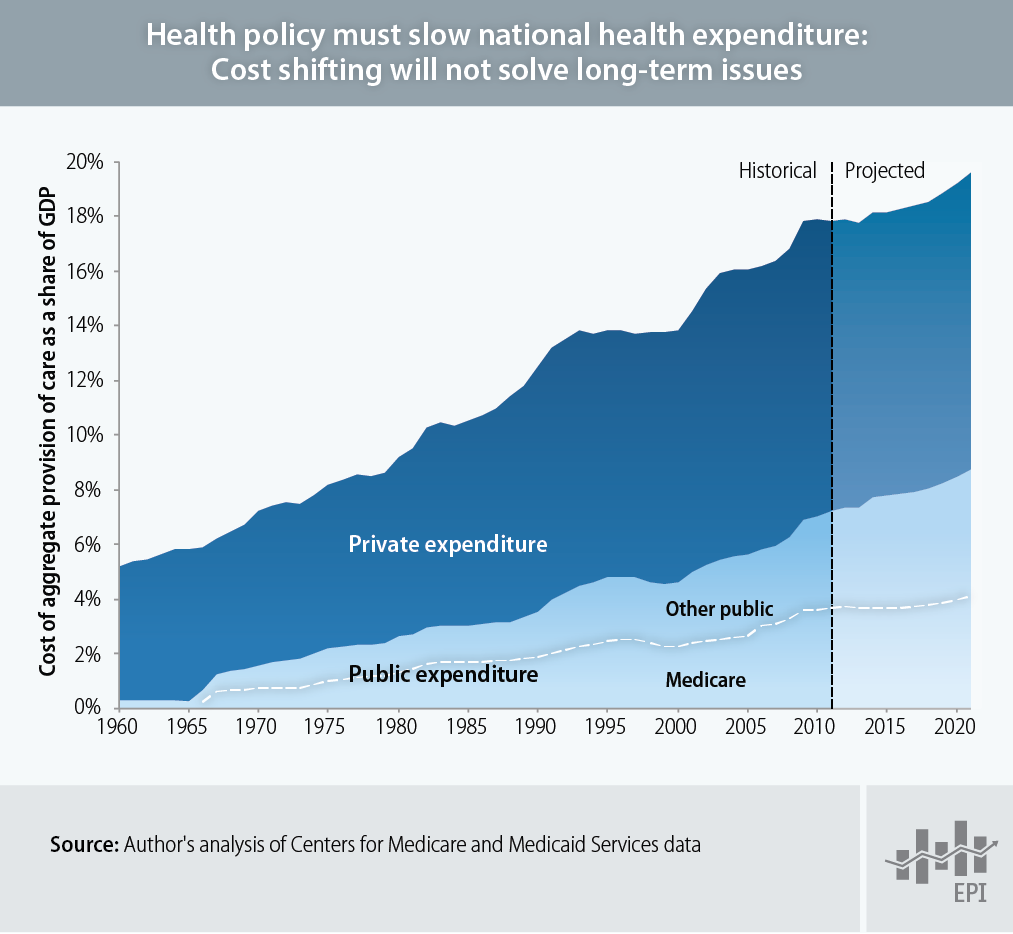With presidential campaign season in full force, much of the spotlight has been on federal budget deficits, and Medicare in particular. While federal budget deficits in recent years have been driven by the Great Recession and its aftermath, long-term fiscal issues are driven almost solely by rising health care costs. These growing government health costs, however, are the direct result of a larger economic problem: the failure of our dysfunctional health system to contain costs. As the figure shows, health care costs—both those paid for by private and public sources—have been rising over the last 50 years and are projected to continue rising.
Though the passage of the Affordable Care Act is projected to bring very long-run costs down, more will likely need to be done to curb rising health care costs. It is also clear that spending trends in Medicare are driven overwhelmingly by a health system that is disturbingly inefficient. Further, shifting Medicare costs by cutting guaranteed benefits (as the Romney-Ryan ticket has advocated) would not address the underlying economic problem of health care costs crowding out other potential uses of future income growth.

